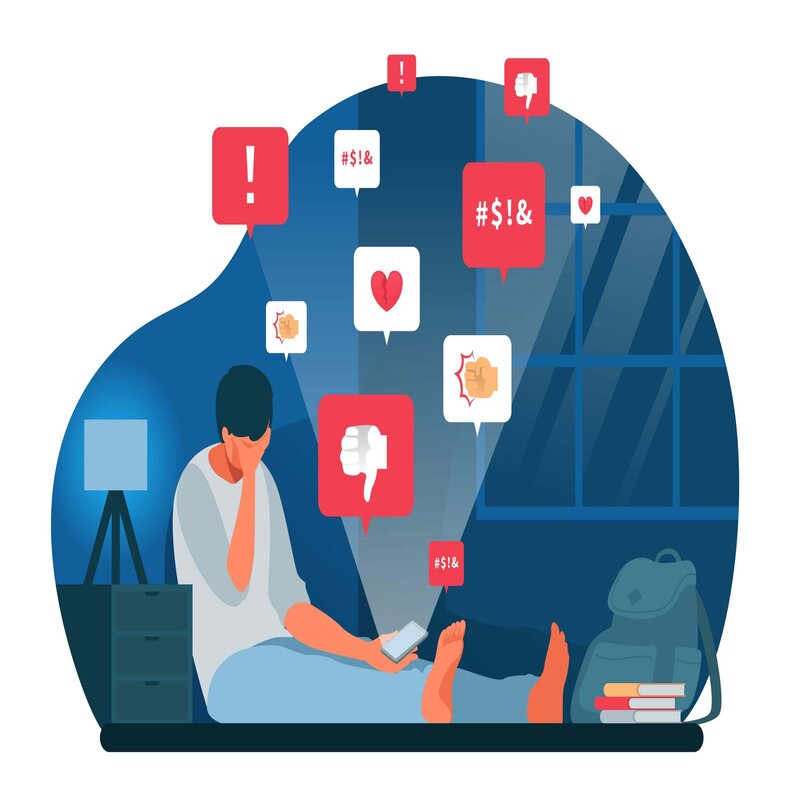How Does Social Media Impact Your Mental Health? (Health & Beauty - Health Services)
Hot-Web-Ads > Health & Beauty > Health Services
Item ID 15794729 in Category: Health & Beauty - Health Services
How Does Social Media Impact Your Mental Health? | |
Social media has become a central part of our daily routines, impacting how we connect, communicate, and perceive the world. Platforms like Facebook, Instagram, Twitter, and TikTok allow people to share their lives and ideas with a global audience in real-time. While this connectivity offers incredible opportunities for personal expression and the spread of information, it can also shape our mental health in complex ways. With many users spending several hours a day online, it’s important to understand the potential effects, both positive and negative, that social media can have on our well-being. Building Positive Connections Through Social Media On the positive side, social media serves as a space where individuals can find support and community. Whether it's joining a group that shares a specific hobby, cause, or life experience, users can feel less alone and more connected. For those who might feel isolated in their physical environment, social media can provide a safe and encouraging place to communicate with like-minded individuals. Support groups for mental health, parenting, fitness, and other interests have flourished online, offering people the chance to exchange ideas and share struggles. This ability to connect with others can enhance feelings of belonging and social support, which are essential for mental well-being. The Negative Impact of Social Comparison However, the flip side of social media is the potential for harmful comparison. With the constant flood of polished, edited, and curated content, it’s easy for users to feel like their own lives don’t measure up. This comparison can lead to feelings of inadequacy, low self-esteem, and even depression. It's important to remember that most people share only the highlights of their lives online, leaving out the challenges and difficulties they may be facing. Understanding this reality can help people avoid the emotional pitfalls of comparing themselves to unrealistic standards. Limiting exposure to content that triggers these negative feelings is another helpful strategy for protecting one’s mental health. The Link Between Social Media, Anxiety, and Depression In recent years, research has shown a connection between excessive social media use and mental health issues like anxiety and depression. For some users, the constant pressure to keep up with the latest trends, maintain a certain image, or even deal with online harassment can be overwhelming. The phenomenon of FOMO (Fear of Missing Out) is particularly common, as people feel anxious about not participating in events, discussions, or trends they see others enjoying online. Additionally, cyberbullying and negative interactions on social media can significantly affect a person’s emotional health. Taking regular breaks from social media or setting limits on daily use can help alleviate these feelings and create a healthier balance between online and offline life. Developing Healthy Social Media Habits It’s crucial to be mindful of how social media affects mental health and to develop habits that promote well-being. One of the most effective strategies is setting daily limits on social media use, ensuring that it doesn't consume too much time or energy. Another helpful approach is curating your social media feed to focus on content that brings positivity and inspiration, rather than negativity or comparison. Many users find it beneficial to follow mental health advocates, motivational speakers, and educational content to create a more uplifting experience online. Engaging in positive discussions and seeking out supportive communities can also help reduce the stress often associated with social media usage. Seeking Professional Help for Social Media-Related Stress If social media becomes a source of distress, it may be time to seek help from a mental health professional. Therapists and counselors can provide valuable tools for managing the emotional challenges that arise from excessive social media use. Many therapists are now trained to help clients navigate the complexities of living in a digital age, where online interactions can significantly impact real-life mental health. Speaking to the right therapist can offer new insights into how to balance social media use and protect emotional well-being. Therapy can also be a safe space to explore deeper issues that might be contributing to stress, anxiety, or depression related to social media. Conclusion: Achieving Balance in a Digital World In conclusion, while social media provides connection and self-expression, it also poses challenges to mental health. Being mindful of its positive and negative impacts helps users maintain balance. By controlling how we engage with social media, we can reduce its harms and enhance positive experiences.  | |
| Related Link: Click here to visit item owner's website (0 hit) | |
| Target State: All States Target City : India Last Update : Oct 07, 2024 8:04 AM Number of Views: 90 | Item Owner : sandeshify Contact Email: (None) Contact Phone: (None) |
| Friendly reminder: Click here to read some tips. | |
Hot-Web-Ads > Health & Beauty > Health Services
© 2025 Hot-Web-Ads.com
USNetAds.com | GetJob.us | CANetAds.com | UKAdsList.com | AUNetAds.com | INNetAds.com | CNNetAds.com | USAOnlineClassifieds.com
2025-03-06 (0.223 sec)